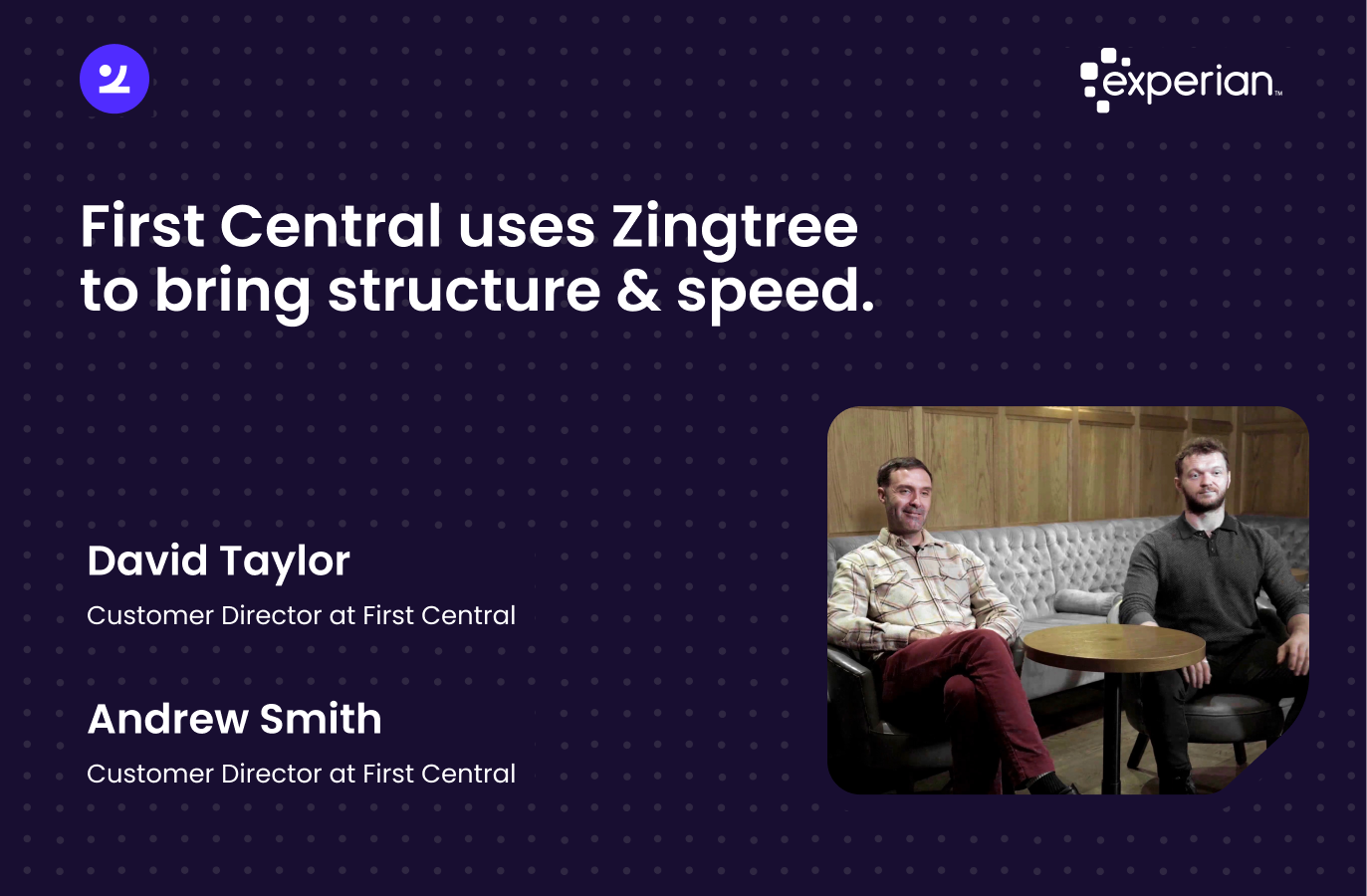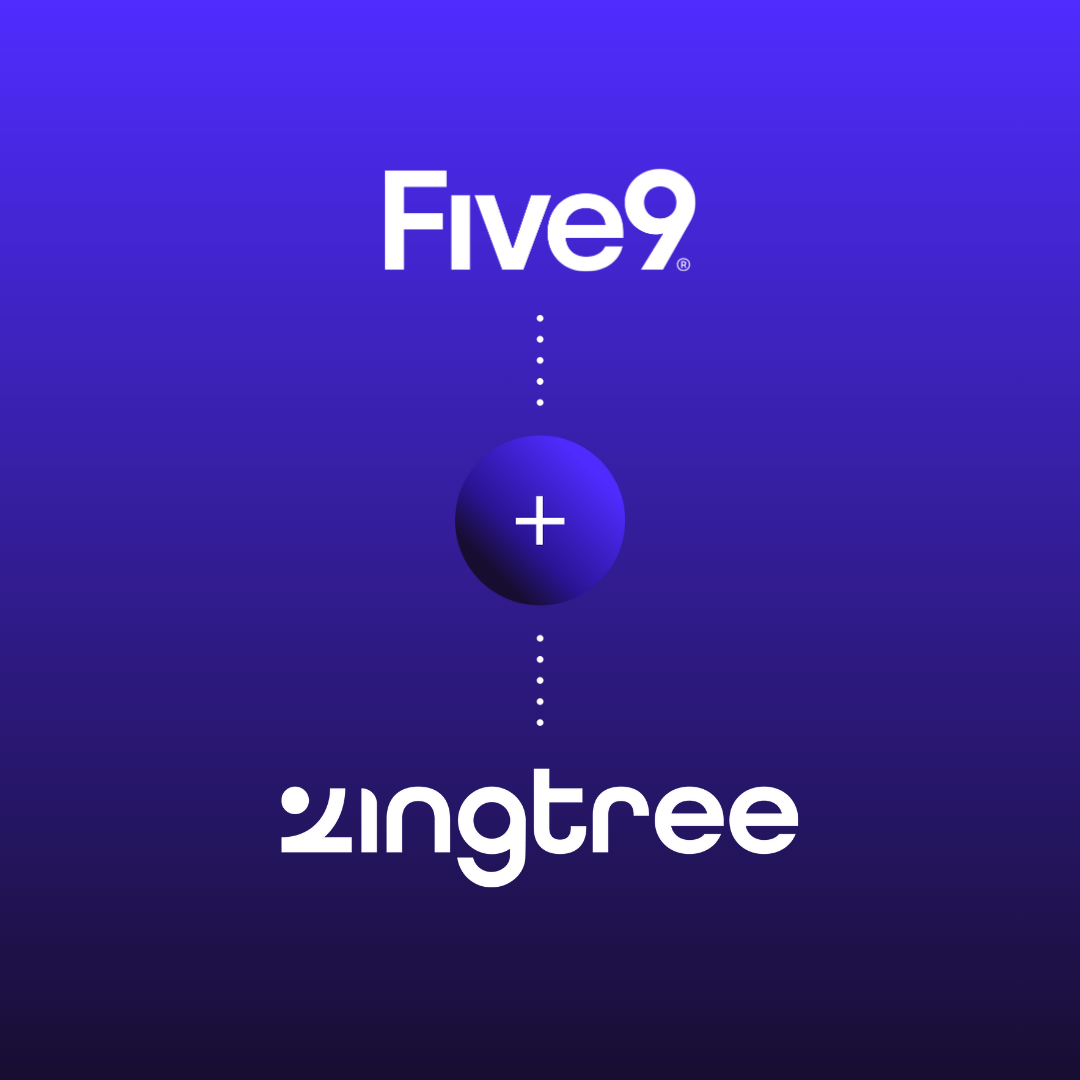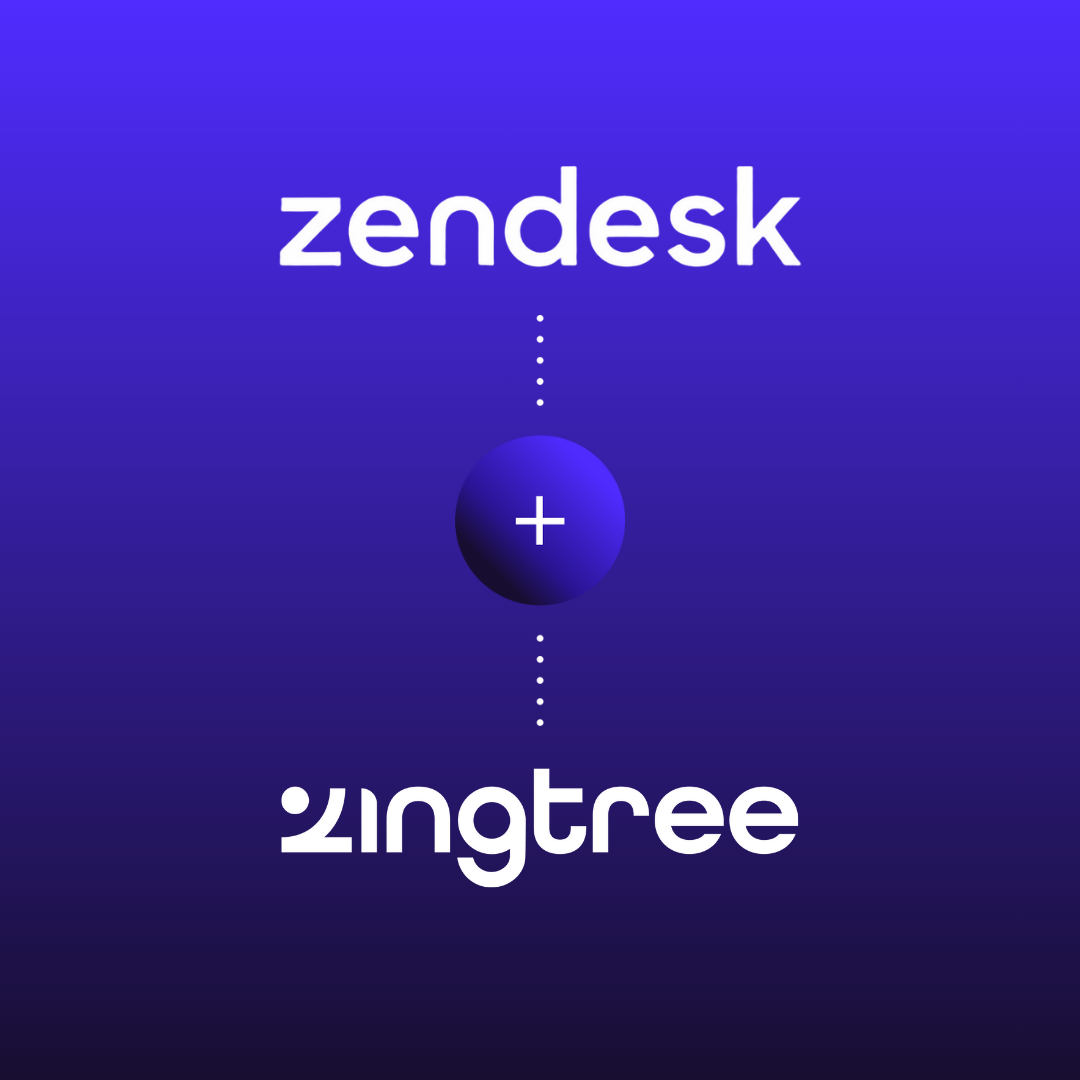7 Best AI Platforms for Complex Customer Support Tasks
Not all AI platforms are built for complexity. This post breaks down 7 leading AI tools – and shows which ones actually handle multi-step, regulated support tasks without falling apart.

Modern enterprises face unprecedented customer service complexity, requiring AI platforms that can handle multi-step queries, maintain compliance, and deliver consistent outcomes at scale. An AI platform for complex customer support leverages intelligent algorithms and automation to efficiently resolve advanced, multi-step queries, reduce handle times, and ensure compliance at scale.
This roundup is based on enterprise research, analyst reports, and recent buyer feedback to help operations and CX leaders identify the best-fit AI solutions for complex, regulated support environments.
Zingtree
Zingtree stands apart as a no-code, logic-driven AI platform that delivers deterministic outcomes for enterprises where consistency and compliance aren't optional.
Unlike probabilistic AI systems that can produce variable results, Zingtree's deterministic approach ensures that identical inputs always generate identical outputs, making it ideal for heavily regulated industries like insurance, healthcare, and finance.
The platform's "one flow, consistent outcomes" methodology addresses critical business pain points through enterprise-grade integrations with CRM and helpdesk tools including Zendesk, Salesforce, ServiceNow, and Five9. Real-time data fetching capabilities enable dynamic decision-making while maintaining full audit trails for regulatory compliance.
Zingtree's vertical-specific applications demonstrate its relevance across complex support environments. Insurance teams use it for claims processing and billing resolution, healthcare organizations deploy it for benefits navigation and PHI-aware self-service, and field service companies leverage it for scheduling, dispatch, and technical triage. The platform's bi-directional data sync ensures seamless information flow between systems.
Enterprises implementing Zingtree typically achieve measurable operational improvements: average support handle time reductions of up to 30%, 60% faster agent onboarding, and 12x increases in deflection rates. These metrics reflect the platform's ability to codify institutional knowledge into repeatable, scalable workflows that maintain quality regardless of agent experience level.
The platform's compliance-by-design architecture includes version-controlled flows, complete audit trails, and policy enforcement mechanisms that ensure wrong answers simply aren't possible. For organizations where regulatory compliance is non-negotiable, Zingtree serves as the AI automation layer that eliminates guesswork while accelerating resolution times.
Intercom + Fin
Intercom leads the market in AI-powered customer support through its sophisticated chatbot automation and personalized messaging capabilities. Now, with Fin – its GPT-powered agent – Intercom has moved into agentic AI.
Fin can autonomously resolve queries by pulling knowledge from help centers and executing simple workflows, with seamless escalation paths when human handoff is required. It’s built to function inside and outside Intercom, and can integrate with tools like Zingtree or Salesforce, giving it flexibility for hybrid environments.
Multi-channel support spans web chat, email, and mobile messaging, while user-friendly workflow design enables rapid deployment and iteration without extensive technical resources.
Fin is best for digital-first teams with strong knowledge base infrastructure who want quick wins with generative AI—and are ready to monitor for hallucinations.
Freshdesk + Freddy AI
Freshdesk focuses on AI-driven ticket management automation that streamlines workflow processing and reduces manual intervention. AI-driven ticket management automates sorting, prioritization, and escalation of customer issues to improve operational efficiency by analyzing content, urgency indicators, and historical patterns to route inquiries to appropriate resources.
Freddy AI brings automation to Freshdesk through ticket routing, sentiment detection, and agent assist suggestions. It excels at surface-level optimization and is particularly useful for reducing ticket volume through smart suggestions.
However, Freddy is tightly coupled to the Freshworks ecosystem. It’s not designed for extensibility or interoperability with other systems, which limits its fit for enterprises managing diverse stacks or regulated workflows.
Best for small-to-mid-sized teams focused on efficiency gains without deep customization.
Zendesk + Zendesk AI
Zendesk combines traditional support infrastructure with embedded AI for triage, macros, and agent productivity. Its AI features are focused on optimizing workflows within Zendesk: auto-suggesting responses, tagging, classifying tickets, and routing based on intent.
While helpful for speeding up resolution, Zendesk’s AI is not truly agentic and doesn’t natively support end-to-end resolution logic across systems. It works best when layered with a tool like Zingtree to drive complex workflows.
Zendesk’s pricing structures accommodate mid-to-large organizations, and its flexible integration architecture supports extensibility—but its AI is optimized for internal Zendesk use.
HubSpot + Breeze AI
HubSpot Service Hub delivers CRM-integrated customer support with a growing AI layer, including tools like ChatSpot and Breeze AI. These GPT-style assistants help automate replies, summarize tickets, and surface CRM-linked insights.
However, Breeze AI is built for the HubSpot ecosystem. While it’s powerful inside that environment, its interoperability is limited. For orgs deeply invested in HubSpot, it’s a strong value-add. For mixed stacks or regulated industries, it lacks the governance and execution capabilities of tools like Zingtree or Fin.
The platform's strength lies in its ability to transform customer support from a cost center into a growth driver through integrated customer success tools and automated follow-up workflows that identify expansion opportunities.
Salesforce + Einstein / Agentforce
Salesforce Einstein functions as a premium AI layer within the Salesforce Service Cloud, enhancing case routing, summarization, and prediction. The system analyzes interaction histories to anticipate customer needs and recommend optimal next steps for support agents.
Einstein's self-service automation capabilities reduce routine query volumes while empowering agents with actionable recommendations based on similar case resolutions and customer behavior patterns. The platform's predictive analytics identify potential issues before they escalate, enabling proactive support interventions.
Its next-gen initiative – Agentforce – brings agentic AI into the Salesforce stack, promising autonomous resolution using real-time data and Salesforce’s Data Cloud.
However, Einstein and Agentforce are still best used inside Salesforce. They offer powerful capabilities, but are less portable and often require Salesforce developer resources to customize.
Best for orgs already committed to Salesforce across CX, sales, and operations.
Zoho Desk + Zia
Zia is Zoho’s AI assistant for support teams. It offers intent detection, ticket assignment, anomaly alerts, and suggested articles. Zia works well within the Zoho suite and provides light-touch automation at an affordable cost.
However, Zia’s capabilities are more assistive than agentic. It’s not built for deep resolution logic, cross-system orchestration, or compliance-driven workflows.
Best for growing support teams just starting their AI journey within Zoho’s ecosystem.
How to Choose the Right AI Platform for Complex Support Tasks
Selecting the optimal AI support platform requires systematic evaluation across multiple dimensions that align with organizational needs and constraints. The most critical criteria include technical fit with existing infrastructure, integration capabilities with current systems, scalability to handle growth, compliance requirements for regulated industries, and total cost of ownership throughout the platform lifecycle.
Total Cost of Ownership encompasses upfront licensing fees, implementation costs, ongoing maintenance expenses, training requirements, and hidden costs such as customization and integration work. This comprehensive view prevents budget surprises and ensures accurate ROI calculations.
The decision-making process should follow a structured approach: first, identify specific support challenges and desired outcomes; second, shortlist vendors based on core requirements; third, conduct thorough platform demonstrations focusing on real-world use cases; fourth, compare analytics capabilities and reporting features; and finally, evaluate pricing models and contract terms.
Technical evaluation should prioritize platforms that offer deterministic AI capabilities for consistent outcomes, deep integration possibilities with existing CRM and helpdesk systems, and sufficient customization options to accommodate unique business processes and compliance requirements.
Key Features to Look for in AI Customer Support Platforms
Enterprise-grade AI customer support platforms must deliver specific capabilities that ensure operational excellence and regulatory compliance. Essential features include deterministic AI systems that follow pre-defined rules and logic to ensure predictable, policy-compliant outcomes every time, natural language processing for accurate intent recognition, and multi-channel automation spanning web, phone, chat, and email interactions.
Deep CRM and helpdesk integrations enable bi-directional data exchange, ensuring customer information remains current across all systems while automated workflows trigger appropriate actions based on interaction outcomes. Compliance and auditability features provide complete interaction trails and policy enforcement mechanisms critical for regulated industries.
Real-time data access capabilities allow dynamic decision-making based on current customer status, account information, and interaction history. Workflow analytics provide insights into resolution patterns, agent performance, and system efficiency to support continuous improvement initiatives.
Integration and Compatibility with Existing Systems
Seamless integration capabilities determine platform success more than individual features, as isolated systems create operational silos and reduce user adoption. Leading AI platforms offer pre-built connectors for major CRMs including Salesforce, HubSpot, and Microsoft Dynamics, plus helpdesk tools such as Zendesk, ServiceNow, and Jira Service Management.
Bi-directional integration enables systems to exchange data in real-time both ways, ensuring customer information updates propagate across all platforms while support interactions trigger appropriate workflow automation. This real-time synchronization prevents data inconsistencies and enables comprehensive customer journey tracking.
API access and webhook support provide flexibility for custom integrations with proprietary systems or specialized industry applications. Modern platforms should support both REST and GraphQL APIs with comprehensive documentation and developer resources for implementation teams.
Integration examples include automatic ticket creation from chat interactions, CRM record updates based on support resolutions, and triggered email sequences following specific support outcomes. These automated workflows reduce manual data entry while ensuring consistent customer experiences across all touchpoints.
Customization for Industry-Specific Requirements
Industry-specific configuration capabilities ensure AI platforms can accommodate unique compliance requirements and operational processes found in regulated sectors. Healthcare organizations require HIPAA-compliant data handling and PHI protection, while financial services need SOX compliance and audit trail capabilities.
Insurance companies benefit from custom script logic that handles claims processing workflows, policy verification steps, and regulatory disclosure requirements. Manufacturing and field service organizations require integration with inventory systems, service scheduling platforms, and equipment databases for comprehensive support automation.
Platform capacity for custom data validation, regulatory record-keeping, and SLA enforcement mechanisms enables organizations to maintain compliance while achieving operational efficiency. Customizable AI support tools are essential for meeting process standards in sectors like insurance and healthcare, where regulatory compliance is non-negotiable and errors can result in significant penalties.
Configuration flexibility should extend to workflow logic, user interface customization, reporting requirements, and integration parameters to accommodate diverse organizational needs without requiring extensive development work.
Scalability and Handling Multi-Channel Support
Enterprise readiness depends on scalable performance across expanding support volumes and touchpoints without degrading response quality or system reliability. Multi-channel support enables servicing customers seamlessly across email, chat, phone, social media, and self-service portals within a unified workflow that maintains context and interaction history.
Platforms must preserve conversation context when customers switch between channels, ensuring agents have complete interaction visibility regardless of initial contact method. This context preservation prevents repetitive information gathering and improves first-contact resolution rates.
Load balancing capabilities distribute inquiries across available resources while maintaining expertise matching for complex technical issues. Auto-scaling infrastructure adapts to traffic fluctuations without manual intervention, ensuring consistent performance during peak periods or unexpected volume spikes.
Digital and voice channel integrations enable comprehensive omnichannel support that meets customers where they prefer to engage. Modern platforms should support emerging channels including social media messaging, video chat, and mobile app integration while maintaining consistent automation capabilities across all touchpoints.
Analytics and Reporting for Measuring Support Effectiveness
Comprehensive analytics capabilities enable data-driven optimization and demonstrate measurable ROI from AI platform investments. Essential metrics include resolution rate tracking, first-contact resolution measurement, agent performance analysis, and customer satisfaction scoring through NPS and CSAT surveys.
First-contact resolution rate measures the percentage of customer issues resolved during the initial interaction without requiring follow-up contacts, indicating both system effectiveness and customer satisfaction. This metric directly correlates with operational efficiency and cost reduction.
Compliance tracking capabilities provide detailed audit trails for regulatory requirements while workflow analytics identify bottlenecks and optimization opportunities. Real-time dashboards enable proactive management while historical reporting supports strategic planning and budget justification.
Advanced platforms offer predictive analytics that identify trends, forecast support volume, and recommend resource allocation adjustments. These insights enable proactive capacity planning and continuous improvement initiatives that maintain service quality while controlling costs.
Frequently Asked Questions
Which AI platforms excel at resolving complex customer issues?
Platforms with advanced decision logic and strong analytics are best suited for resolving complex customer issues, as they guide agents through multi-step workflows and ensure consistency in every interaction. Deterministic AI systems like Zingtree excel in regulated environments where compliance is critical, while other platforms provide predictive insights for proactive issue resolution.
How do AI platforms integrate with CRM and helpdesk tools?
Leading AI platforms offer pre-built connectors or APIs, enabling seamless data exchange and ticket synchronization with major CRM and helpdesk solutions. Bi-directional integration ensures real-time data flow between systems, preventing information silos and enabling comprehensive customer journey tracking across all touchpoints.
Can AI agents be tailored for specific industries and workflows?
Yes, most enterprise AI platforms allow deep customization to align with unique workflow requirements and compliance mandates found in industries like healthcare, insurance, and finance. Custom script logic, data validation rules, and regulatory reporting capabilities ensure platforms meet industry-specific requirements while maintaining operational efficiency.
How is seamless escalation to human agents handled?
AI platforms typically include escalation logic that transitions inquiries to human support staff automatically when an issue exceeds predefined thresholds of complexity. Context preservation ensures agents receive complete interaction history, customer information, and attempted resolution steps to enable efficient handoffs without repetitive information gathering.
What types of analytics help improve complex support tasks?
Effective platforms provide analytics on metrics such as resolution rates, agent effectiveness, customer satisfaction, and workflow bottlenecks, enabling data-driven process improvements. Advanced analytics include predictive insights for proactive issue identification, compliance tracking for regulatory requirements, and performance benchmarking for continuous optimization initiatives.
.webp)

.svg)
.svg)
.svg)



